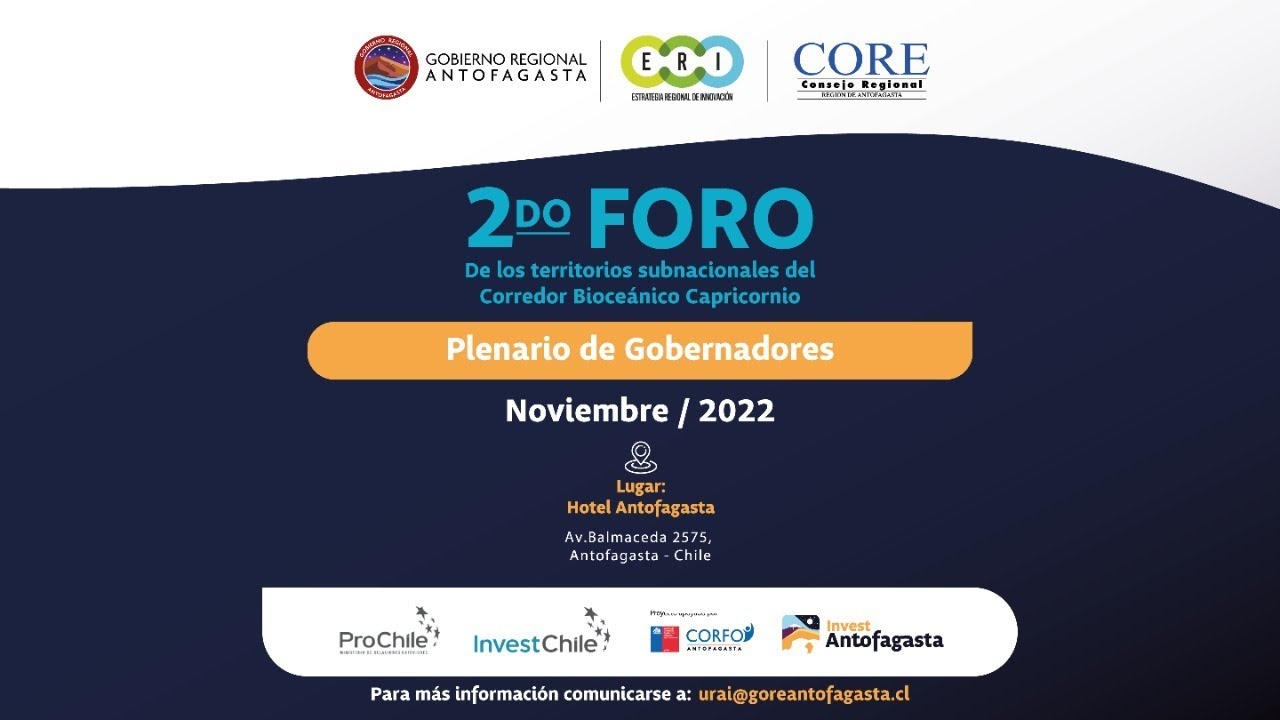The Subnational Technical Workshop of the Integration Forum of the Capricorn Bioceanic Corridor was held in Antofagasta
Leave a CommentANTOFAGASTA (CHILE) – On November 13 and 14, a Workshop of Subnational Technical Teams was held at the Hotel Antofagasta in this city. The purpose of the workshop was to follow up on the work plan of the Regional Master Plan for Integration and Development of the Capricorn Bioceanic Corridor (PM-CBC).
To validate and guide the progress and next steps of ongoing actions and studies, the opening session was reserved for an initial public-private informative session, including a space for the presentation of CBC benefits and opportunities visualized by the subnational territories and the private sector of Antofagasta.
The participants included technical teams from the eight subnational territories: Salta and Jujuy from Argentina; Mato Grosso do Sul from Brazil; Antofagasta and Tarapacá from Chile; and Boquerón, Alto Paraguay, and Presidente Hayes from Paraguay. Representatives from the public sector, including the National Government of Chile and the Regional Governments of Antofagasta and Tarapacá, were also present. Additionally, actors from the private sector and academia in Antofagasta, as well as the technical team of the Inter-American Development Bank (IDB), attended.
Regarding the meeting of the subnational technical teams, the topics addressed in the various sessions aligned with the three dimensions of study within the PM-CBC:
Block 1: Facilitation of Trade and Cross-Border Processes Block 2: Physical and Digital Infrastructure Block 3: Dimension on Productive Development
The final part of the workshop was reserved for the Executive Committee of the Forum, which focused on discussing the development of a communication strategy and the establishment of mechanisms for coordination and monitoring of the PM-CBC.
About: The Capricorn Bioceanic Corridor is a South American integration initiative aimed at generating sustainable economic and social development for the participating countries and territories. Its progress is driven by the Integration Forum, formed by the eight subnational states that make up the corridor. The implementation is through the Regional Master Plan for Integration and Development of the Capricorn Bioceanic Corridor (PM-CBC), a Regional Public Good (RPG) approved by the IDB in 2023 to support the territories comprising the Forum in planning coordinated actions and projects across three dimensions: facilitation of trade and cross-border processes; physical and digital infrastructure; and productive development.
Press Contact: info@corredorbioceanico.org

